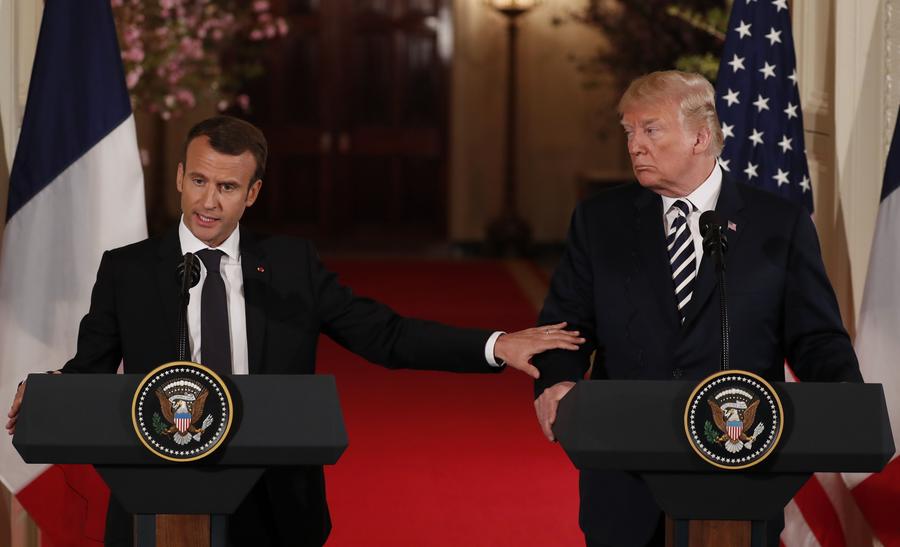Europeans work to save Iran accord


EU says it will ensure sanctions toward Teheran remain lifted
Dismayed European allies sought on Wednesday to salvage the Iran nuclear deal and preserve their Iranian trade after US President Donald Trump withdrew the United States from the landmark accord and ordered sanctions reimposed on Teheran.
"The deal is not dead. There's an American withdrawal from the deal but the deal is still there," French Foreign Minister Jean-Yves Le Drian said.
But Iranian President Hassan Rouhani, who helped engineer the 2015 agreement to ease Iran's economically crippling isolation, told French counterpart Emmanuel Macron in a phone call that Europe had only a "limited opportunity" to preserve the pact, the Iranian Students' News Agency reported.
Iranian Supreme Leader Ayatollah Ali Khamenei said: "Mr Trump, I tell you on behalf of the Iranian people: You've made a mistake. ... I said many times from the first day: Don't trust America."
Macron, who like other European leaders had lobbied Trump to keep the agreement that was struck before the Republican president took office in January 2017, urged Rouhani to adhere to the deal and to consider broader negotiations.
Trump said on Tuesday he would revive US economic sanctions, which would penalize foreign firms doing business with Teheran, to undermine what he called "a horrible, one-sided deal that should have never, ever been made".
On Wednesday, he said Iran would now either negotiate or "something will happen". It was not immediately clear what actions he was suggesting would take place.
The White House said later that Trump was preparing to impose new sanctions on Iran, perhaps as early as next week, but gave no details.
Iran has drafted a "proportional" plan to cope with the US withdrawal, the official news agency, IRNA, quoted government spokesman Mohammad Baqer Nobakht as saying. He said without elaborating that budgets had been drawn up to handle various scenarios.
The fruit of more than a decade of diplomacy, the nuclear agreement was clinched in July 2015 by the US, France, Britain, Germany, Russia, China and Iran.
It was designed to prevent Iran developing a nuclear bomb in return for the removal of sanctions.
Trump complained that the deal did not address Iran's ballistic missile program, its nuclear activities beyond 2025 or its alleged role in conflicts in Yemen and Syria.
His decision raises the risk of deepening conflicts in the Middle East, puts the US at odds with European diplomatic and business interests and casts uncertainty over global oil supplies. European and US companies could lose billions of dollars in canceled commercial deals and a major new export market undercut by the US decision to reimpose sanctions on Iran.
'Region deserves better'
Le Drian, German Chancellor Angela Merkel and the International Atomic Energy Agency all said Iran was honoring its commitments under the accord.
"The region deserves better than further destabilization provoked by American withdrawal," Le Drian said.
The European Union said it would ensure sanctions on Iran remain lifted, as long as Teheran meets its commitments.
The Kremlin said Russian President Vladimir Putin was "deeply concerned" by the withdrawal, the RIA news agency said.
Iranian officials will next week meet counterparts from France, Britain and Germany. Khamenei appeared sceptical whether they could deliver: "I don't trust these three countries."
Reuters and AP contributed to this story.
































